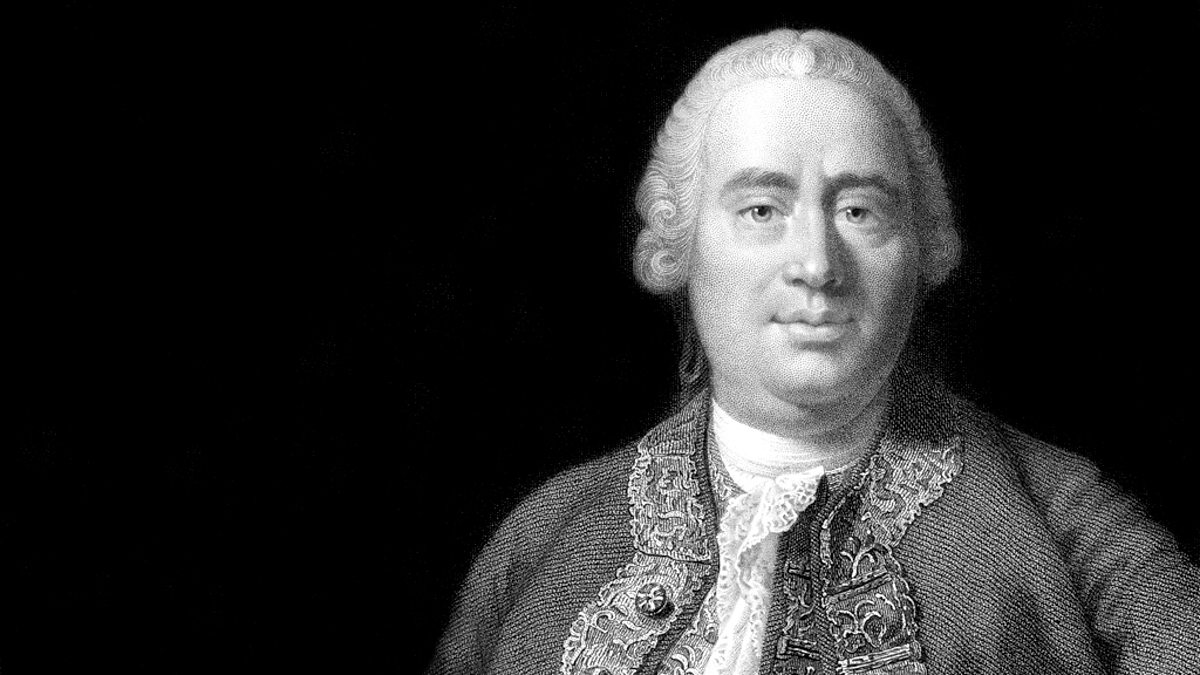
Biography
In his autobiography written near the end of his life, David Hume describes himself as a “man of mild disposition, of command of temper, of an open, social, and cheerful humour, capable of attachment, but little susceptible of enmity, and of great moderation in all my passions.” Those who knew him agreed for the most part with his assessment.
Hume was born on February 24, 1711, in Edinburgh. His father died when he was an infant, leaving him and his two older siblings in the care of his mother. Hume went with his older brother to the University of Edinburgh in 1723. He “passed through the ordinary course of education with success” and left the university without taking a degree. Hume writes that from an early age, he “found an insurmountable Aversion to anything but the pursuits of Philosophy and General Learning,” and that his passion for literature (comprising philosophy and history) “has been the great ruling passion of my life, and the great source of my enjoyments.”
At age eighteen, a “new scene of thought” opened up to him, and he applied himself to developing these ideas with such intensity that it eventually led to a kind of nervous breakdown. As a reprieve from his studies, he worked for a few months as a clerk in a firm of sugar merchants before relocating to France to compose his Treatise of Human Nature. Hume returned to London in 1737 to see the book through the final stages of (anonymous) publication and was sorely disappointed with the result. According to him, the book “fell dead-born from the press.” Believing that the failure of the Treatise “proceeded more from the manner than the matter,” Hume reworked his ideas into the Enquiry Concerning Human Understanding (1748) and the Enquiry Concerning the Principles of Morals (1751). He called these two works “incomparably the best” of all his writings. Between 1740 and his death in 1776 Hume worked on and published (in various forms) essays on moral, political, and literary matters. In 1752, as Librarian for the Faculty of Advocates in Edinburgh, Hume began research on his History of England, which he published between 1754 and 1761. His Dialogues Concerning Natural Religion were published posthumously and anonymously.
In 1763, Hume accompanied the Earl of Hertford to Paris to work in the embassy. Hume writes in his autobiography that his readers “will never imagine the reception [he] met with in Paris, from men and women of all ranks and stations.” Hume soon became close to the leading French philosophes, and began a lasting friendship with the Comtesse de Boufflers. When Hume returned to England in 1766, he was accompanied by Jean-Jacques Rousseau, who was attempting to escape potential persecution. Their friendship did not last, however, as Rousseau soon wrote to friends that Hume was involved in a conspiracy against him, compelling Hume to defend himself.
In 1775, Hume was struck ill with a disorder that would prove fatal. In an obituary of the great philosopher, his close friend Adam Smith wrote: “Upon the whole, I have always considered him, both in his life-time, and since his death, as approaching as nearly to the idea of a perfectly wise and virtuous man, as perhaps the nature of human frailty will admit.”